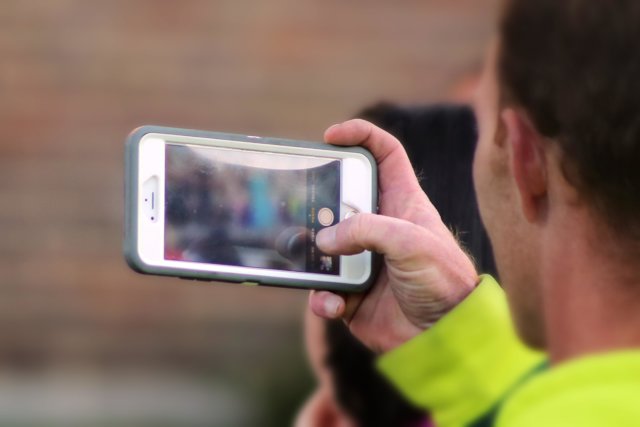
About 15 years ago, I first saw a cell phone at John Marshall High School. It was a new class, and I didn’t know the girl who was frenetically moving her fingers around some hidden object. There had been a high-profile murder that week, and most of the class was glaring at her. Feeling threatened, she was texting fellow members of a gang in search of backup.
I have no idea how many of my deceased former students would be alive today had cell phones not given students immediate access to each other to spar over the last word, escalating conflicts that may have otherwise faded. But the failure to understand this technology, and the responsibility that comes with it, is less on today’s students than on us adults.
The need to teach kids how to control the new technology and not be controlled by it should have been obvious, but we ducked the challenge. Then again, it had previously been apparent that adults needed to teach young people how to read between the lines of television commercials. Many of my fellow Baby Boomers were taught to look past skin-deep appearances and materialism and avoid instant gratification championed by advertising. But as a generation, as well as a society, we failed to sustain that education.
Today, we are asking questions like “Have Smartphones Destroyed a Generation?” Although such a question is hyperbolic, social media has clearly become a public health problem. As young peoples’ screen time has increased over the last decade, the rates of teen depression and suicide have “skyrocketed.” San Diego State University psychology professor Jean Twenge writes, “It’s not an exaggeration to describe iGen as being on the brink of the worst mental-health crisis in decades.”
Former PBS education reporter John Merrow correctly said that adults should be ashamed by the way we have let our children roam unattended across Facebook, Google, and Instagram. He wrote that we “often hear adults describing today’s young people as digital natives usually with a tone of resignation or acceptance.” Merrow said that smacks of abdication of adult responsibility. “Being a ‘digital native’ is not the same as being a ‘digital citizen.’ Young people have always needed ethical guidance and the security of rules and boundaries.”
Our materialistic society and our schools have fallen dangerously behind the curve in addressing digital ethics and literacy. It never made any sense to put the quest for higher test scores over the nurturing of thoughtful and inquisitive citizens. But we no longer have time to waste. Teaching kids to use but not be abused by social media should be a top priority. This is especially true given that society’s embrace and reliance on social media is likely to increase.
My friends and I were raised with the oft-repeated admonition by adults, “Pay close attention; I’m only going to show you once.” Today, grownups cannot merely instruct students to pay attention. We cannot trick kids into concentrating. Instead, we must find other ways of sparking students’ interest in order to teach young generations the value of digital ethics and how to use technology wisely.
Young people obviously had a head start in operating digital devices, but we adults did a better job of emulating their obsessions with hand-held screens than we’ve done in terms of using them in a healthy manner. Our schools should invest in teams of adult mentors from the diversity of our democracy. School systems could invite engineers to help build computer systems in our schools and engage with students to nurture more authentic learning. They could also offer courses in computer ethics and teach them how to fact-check the information and images they receive on their devices.
Our democracy faces some tough challenges, and one of them is the public health crisis growing out of addictions to screen time. By allowing ourselves to be hypnotized by digital technologies, we opened the door to the manipulations of Russia and other propagandists. The first step toward teaching our children to be digital citizens is reclaiming our inner locus of self- control. Then, generation to generation, we can build a 21st century digital culture worthy of our democracy.






















